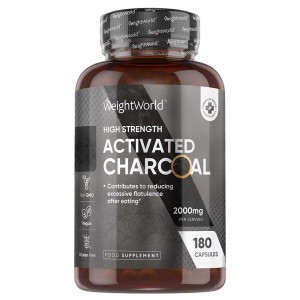Why Omega 3 is so Important for Your Heart
What Are Omega-3 Fatty Acids?
Omega-3 fatty acids are a kind of polyunsaturated fat that is required by the body for different vital functions. They are classified into three types and can be found in both plant-based and marine foods and oils.
- ALA - Alpha-Linolenic Acid (available from plant oils)
- EPA - Eicosapentaenoic Acid (found in oily fish)
- DHA - Docosahexaenoic Acid (available in seafood)
The Connection Between Omega-3s And Heart health

From building brain cells to keeping the heart healthy, Omega-3s are believed to impact every aspect of your overall health. However, the human body does not produce Omega-3 fatty acids on its own. They can only be obtained from omega-3 foods like Tofu, Soybeans, Flax Seeds, Chia Seeds, Walnuts, Canola Oil, Soy Oil, Oysters, Cod Liver Oil, Salmon, Sardines, Shrimp as well as certain fortified foods. Ideally, Omega-3 should make up at least 5% of your total calories.
Omega-3 Benefits For Heart Health
-
Lowers The Level Of Triglycerides
Triglycerides are a type of body fat that is found in the blood. When the level of triglycerides increases in the body, it leads to a fatty build-up in the walls of the arteries. This increases the risk of stroke, but Omega-3s have the ability to lower triglyceride levels! (1)
-
Reduces The Risk Of Arrhythmia
Abnormal heartbeats are called Arrhythmia, and while they are harmless, they may increase the risk of heart issues. Research studies have shown a positive link between the intake of Omega-3 fatty acids and a reduced risk of Arrhythmia. (2)
-
Slightly Lowers Blood Pressure
High blood pressure increases the risk of stroke, but the effects of Omega-3 on blood pressure are known to be positive. Both systolic and diastolic blood pressure are shown to reduce slightly when people are administered a dose Higher in Omega 3 fatty acids. (3)
-
Reduces The Rate Of Plaque Build-up
Plaque mostly constitutes of cholesterol, fat & calcium, and it can accumulate in your arteries. This can limit the flow of oxygen in your blood. A diet that is rich in Omega-3 fatty acids has been associated with a lower risk of stroke. This is because Omega-3 fatty acids have anti-oxidant and anti-inflammatory effects which may improve the functioning of endothelial cells lining the blood vessels. So, the intake of Omega-3 might benefit people with heart disease. (4)
If you are in good health and eat at least two servings of fatty fish every week, then it is excellent for your heart health! However, if ensuring a diet that includes an optimum level of Omega-3 is challenging for you, then you can consider adding Omega-3 supplements to your diet. These easy-to-swallow supplements will reinforce your healthy diet and help boost your brain health without any hassles!
How To Choose The Right Omega-3 Supplements
Here are a few features to look for in your Omega-3 supplement if you want to get the maximum possible benefits:
- 1000mg of Omega-3 in every serving
- A potent combination of EPA and DHA
- A GMP certification so you know you are giving the best to your body
Avoid any preservatives and chemicals and if you are a vegan then check if the supplement is made using Algae Oil. Alongside these factors, following a healthy diet and exercise routine is your best bet for a healthy heart!
References
Other interesting articles
-

WEIGHT MANAGEMENT
How to lose belly fat and how do fat burners help?
-

SEASONAL
How the Glucomannan diet can help you to stay healthy
-

SUPPLEMENTS
The Health Benefits of Raspberry Ketone
-

WHAT'S NEW
All you need to know about natural Fat & Carb Blockers
-

DIET AND NUTRITION
Can Green Coffee Be Your New Ally for Weight Loss?
-

SUPPLEMENTS
Health benefits of Raspberry Ketones and how to use it?
-

WEIGHT MANAGEMENT
How Do Slimming Pills Work?
-

SUPPLEMENTS
14 ways Acai Berry Extract can boost health + 2 recipes
-

IMMUNITY
Why You Need a Detox and How to Naturally Detox at Home
-

DIET AND NUTRITION
How Slimming and Detox Teas Boost Your Health?
Recommended Products
-

 Flat 26% Off
Flat 26% OffOmega 3 Fish Oil 2000mg Softgels
1300 Reviews2000mg 240 Softgels | For Brain, Heart & EyesRegular price £18.99Sale price £18.99 Regular priceUnit price / per£19.99Sale save5%


